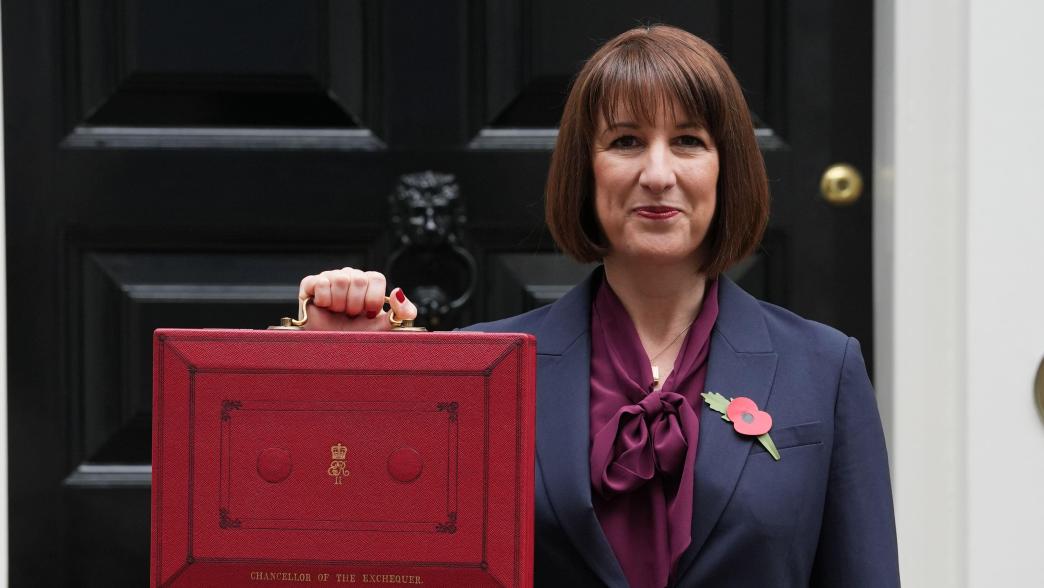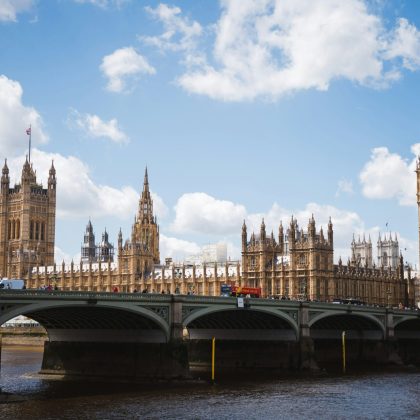Much of the discussion around Rachel Reeves’ autumn Budget in the national press has rightly focused on the major themes: rising taxes, a redefinition of the government’s own fiscal rules, and a considerable increase in public spending. But digging down into the detail, which specific policies will affect the built environment most directly?
Coverdale Barclay’s Account Director, Alexander Peel, has taken a look at the Treasury’s Red Book.
Housing and the residential market
A £500 million boost to the Affordable Homes Programme
The government says this will deliver up to 5,000 additional affordable homes.
Commentators have pointed out a single investment of this size may not substantially move the dial on the government’s commitment to deliver 1.5 million homes over the course of the current Parliament, but amid strained viability for many developers of social and affordable housing, it has been welcomed nonetheless.
Consultation on a new long-term social housing rent settlement, which will allow social rents to rise at inflation plus one percent for five years
The social housing sector had been calling for such a policy in the run-up to the Budget, which provides certainty for Registered Providers. The government will also consider a possible 10-year settlement.
Reduced discounts on Right to Buy and enabling councils to keep all receipts generated by sales
The move is intended to help mitigate the negative effects of the controversial policy by retaining more social housing stock.
£3 billion of additional support for SME builders and the Build to Rent sector
In the form of housing guarantee schemes, the policy will help developers access lower-cost financing to improve the viability of schemes.
Increasing Stamp Duty Land Tax surcharge on second homes to five percent
Representing an increase of two percentage points, the policy could affect landlords’ willingness to buy more properties. Reeves suggested the cash raised by this policy will help support first-time buyers and those moving primary residence, as detailed below.
Stamp duty threshold held for first-time buyers and home movers
First-time buyers will continue to only pay stamp duty on properties above £425,000 until April 2025. This will then be lowered to £300,000. At this point, the banding will also be lowered – first time buyers will pay stamp duty of 5% on the portion of property between £300,000 and £500,000, and normal stamp duty applies above that point.
For home movers, the threshold of £250,000 remains until April 2025. This will then be lowered to £125,000.
Capital Gains Tax thresholds increased – but not for residential property
CGT for lower rate taxpayers has increased from 10 percent to 18 percent, and for higher rate taxpayers from 20 to 24 percent. Crucially, however, the rate on residential properties will not change.
Investment in remediation works will rise to over £1 billion in 2025-26
The funding package includes new steps to speed up the building safety works required for social housing.
£56 million invested to build 2,000 new homes at Liverpool Central Docks
One of many schemes that was previously announced, the funding will help Liverpool City Council bring forward a stalled development.
Retail, leisure and small businesses
National insurance and minimum wage increases
An increase in National Insurance contributions for employers of 1.2 percentage points alongside a lowering of the threshold at which employers start paying the tax has been widely criticised by businesses across the economy, including retailers, who feel it harms entrepreneurship.
Alongside the National Living Wage increasing to £12.21 an hour, up from £11.44, many employers are saying that their function as job creators, be it in retail, property or construction, is being made more difficult – which could ultimately dampen economic growth.
Lower business rates
In a move that has been largely welcomed, particularly by small businesses, the Chancellor announced 40 percent business rates relief for eligible retail, hospitality and leisure firms, up to a cap of £110,000. Many in the hospitality sector, however, are saying the measures simply don’t go far enough in what is a punishing economic environment.
Planning
£46 million to boost the capacity of local planning authorities
A key part of the government’s commitment to planning reform has been an increase in funding to the planning departments themselves. Some in the industry have been sceptical that a figure of this size will unblock the major delays the planning system has been facing. The funding package here is earmarked to hire 300 graduates and apprentices for council planning teams, and to progress large sites that have stalled.
An additional £5 million to improve the planning regime for Nationally Significant Infrastructure Projects
We don’t have much detail on how this will be spent, but it forms part of the government’s focus on easing the passage of major infrastructure projects.
£70 million to support infrastructure and housing development while boosting nature recovery
There is also uncertainty around where this will be allocated in practice, but the move is intended to help assuage fears that a reform of the planning rules will mean a destruction of the natural environment.
£47 million of funding to local authorities to help schemes stalled due to nutrient neutrality requirements
The government suggests this will support the delivery of up to 28,000 homes. This will be welcome news to developers who have found their schemes bogged down by these rules.
Infrastructure
£35 billion to be invested in economic infrastructure in 2025-26
This is the headline figure, which will help fund projects major projects in the transport, water, and energy sectors.
Improving rail connectivity across the country
Announced schemes include upgrading the Transpennine Route between York and Manchester, connecting Oxford and Cambridge through East West Rail, and extending HS2 to Euston.
£1 billion in additional capital for the NHS to address critical maintenance, repairs, and upgrades across the estate
The government has come under criticism for substantially increasing NHS funding without fundamental reform, but many will welcome dedicated funding to improve the state of the nation’s hospitals.
A 50 percent increase in funding for local roads maintenance
£1.6 billion will go toward maintaining and renewing roads, an increase of £500 million on 2024-25.
£500 million to deliver Project Gigabit and Shared Rural Network
This funding will roll out digital infrastructure in underserved parts of the UK.
Energy efficiency and sustainability
An initial £3.4 billion to fund the government’s Warm Homes Plan
The first round of funding is intended to accelerate heat decarbonisation and improve household energy efficiency over the next three years.
£25 million invested in a joint venture to deliver 3,000 energy efficient homes
Together with Muse Places and the Pension Insurance Corporation, the JV plans for 100 percent of these homes to be affordable.
£2.7 billion of funding to continue Sizewell C’s development through 2025-26
This major new nuclear project has been welcomed by many who see it is an important step towards improving the UK’s energy security.
£3.9 billion of funding in 2025-26 for Carbon Capture, Usage and Storage
This will fund so-called Track-1 projects to progress the government’s decarbonisation goals.
Devolution and local government
Local government Budgets to increase to £14.3 billion in 2025-26
This includes additional grant funding of £1.3 billion, and together with changes to council tax and business rates, represents an increase in total core spending power of 3.2 percent.
Integrated settlements for Greater Manchester and the West Midlands
This will allow these devolved leaders much greater freedom to allocate funding. The exact figure this represents will be announced in the coming weeks.
Further down the line, we can expect an English Devolution White Paper which could dramatically reshape local government in England.



